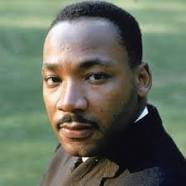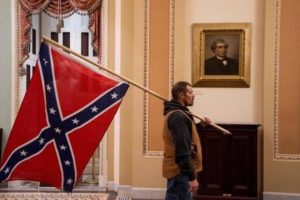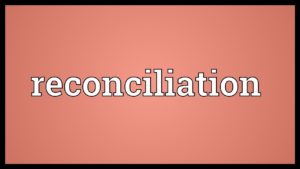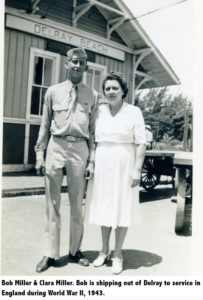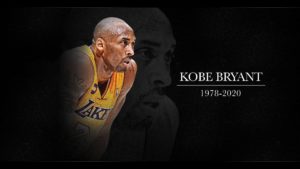
We just marked the one year anniversary of Kobe Bryant’s tragic death.
“To lead others, you have to constantly learn. I wouldn’t say my leadership style changed over the years. I like challenging people and making them uncomfortable. That’s what leads to introspection and that’s what leads to improvement. You could say I dare people to be their best selves.
“That approach has never wavered – from basketball to business. What I did adjust, though, was how I varied my approach from player to player, business to business. I still challenge everyone and make them uncomfortable; I just do it in a way that is tailored to them.
“To learn what would work and for who, I do homework and watch how they behave. I learn their histories and listen to what their goals are. I learn what makes them feel secure and where their greatest doubts lay. Once I understand them, I can help bring the best out of them by touching the right nerve at the right time.” Kobe Bryant on leadership. Found on the website of his venture capital firm Bryant Stibel.
I’ve been on a reading tear of late.
I guess that’s what happens during a pandemic where it’s just not safe to resume your normal life of running around.
I’ve always loved to read and I’m a late bloomer when it comes to education—I did the minimum to get by in school excelling in the subjects I liked and struggling in those that didn’t interest me because I just didn’t work very hard. But sometime in my late 20s, a ferocious curiosity overtook me and I just became a voracious student of life. I was a journalist back then which meant that every week I got to interview interesting people and learn a little about their lives. I spent time with homicide detectives, street cops, paramedics, doctors, developers, entrepreneurs, scientists, farmers, chefs, techies and more. I learned a little bit about a whole lot of things.
Being in newspapers in the late 80s and early 90s, was the best job imaginable for someone like me who was curious and liked to write. And so I became what some refer to as a “generalist.”
My editors knew they could assign me to any story and I could figure it out. So I wrote about business, law, education, crime and even agriculture. I profiled athletes, playwrights, professors, detectives, artists and politicians.
But when you are a generalist, you don’t master any one thing. And so in my business life and my civic life, I have had to lean on experts and reading materials to make it through. It’s worked—for the most part.
I thought about all that last week, when the world observed the one year anniversary of the tragic helicopter accident that killed Kobe Bryant, his 13-year-old daughter and seven others. What a horrible ending to a magnificent story. Kobe was focused on one thing. I am not.
Kobe is an interesting model because he was a flawed man with a past (a sexual assault accusation in 2003) that marred his legacy. He worked hard to reinvent himself and edit the narrative of his past, according to one profile I recently read. He learned that real life is not so easy to revise. I think we all learn that.
We also learn that we are fragile. All of us. Money, power, fame, talent and smarts doesn’t give us protection against all the things that might rear up and bite us. And so if we survive, we might find that we get stronger, wiser and more empathetic.
We can’t let setbacks define us, or we get lost forever.
As Hemingway said: “We’re stronger in the places that we’ve been broken.”
So like I mentioned, I’ve been reading a lot these days—a book about those who achieve “unreasonable success,” another on the “hidden habits of genius” and a book about how to change your mind.
These books have made me think about life and the people I have observed along the way.
In Kobe’s case, I thought about his leadership style which he describes in the quote above—and his efforts to make people feel uncomfortable.
I like everything about that quote except the word uncomfortable. Oh, I guess being uncomfortable has its place in life. Sometimes you need to be uncomfortable to garner the will to make a needed change.
But I have found that making people comfortable is a better way. Comfort is not complacency, which is a killer. But comfort allows people to feel safe to do their best work, make good mistakes (there is such a thing) and to settle in so they can work hard to break through.
Everywhere I have worked or spent time, I have wanted people to be comfortable. I despise complacency, believe in accountability and like to be around people who work hard. But I have found that if you’re having fun, over time you’ll find success.
I like cultures that encourage experimentation. With experimentation you will experience a fair amount of mistakes. But you’ll find that most mistakes aren’t fatal and if you learn from them and don’t repeat them you’ll break through.
I’ve worked in organizations where fear ruled and it isn’t pretty.-Sure, you might get some short term results but fear isn’t sustainable and it doesn’t age well.
The best organizations are those where people feel free to innovate, experiment, speak openly and where they know they are listened to and respected.
These are not genius insights, I know that. But yet, why is that kind of culture so rare?
Why?
In my recent reading, I’ve marveled at the game changers who achieved unreasonable success and I discovered the hidden habits of genius, but the common thread seems to be people that really want to change the world and are obsessively focused on doing so. Some were individuals who worked well on their own and some built teams and companies. Some led countries, some used art to expand our consciousness.
Still, not too many of us are Einstein’s, Edison’s, Dylan’s, Van Gogh’s or Kobe’s.
So maybe the key is to surround yourself with people who are relentless about self-improvement and doing good things. Once again, Kobe left us some advice: he looked for two characteristics when evaluating people. “The most important thing is curiosity first. I want curious people — people who ask questions, people who want to figure things out, and people who figure out new ways to do things,” he says. “From that curiosity, then you need to have the determination to see that curiosity through.”
I’m comfortable with that.
What do you think?

 Rituals matter.
Rituals matter.